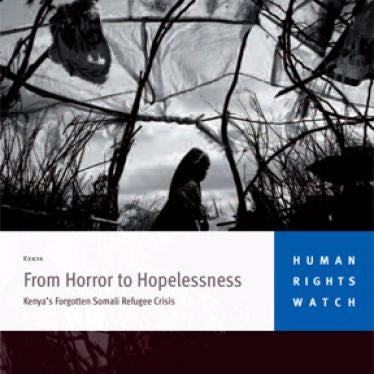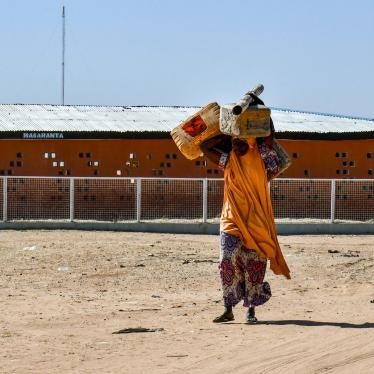(Washington, DC) – Kenyan authorities should clearly instruct all officials to protect refugees and asylum seekers in accordance with international law, Human Rights Watch said today. A senior Kenyan refugee official recently admitted that security forces might cause problems for asylum seekers arriving from Somalia because those forces “do not understand the implications of such actions.”
Human Rights Watch has documented extortion, detention, violence, and deportation at the hands of the Kenyan police faced by the record number of Somalis entering Kenya. Human Rights Watch called on Kenya’s Commissioner of Police and the Ministry of Provincial Administration and Internal Security to instruct all police and security forces, particularly in the border region, about Kenya’s obligations to protect refugees. They should make clear that security officials will be held personally accountable for any abuses of refugees and asylum seekers.
“Kenyan officials talk about the government’s commitment to protecting refugees, but actions speak louder than words,” said Bill Frelick, refugee policy director for Human Rights Watch. “Closing the border and abusing asylum seekers, including forcing Somalis to return because they can’t pay police bribes, is unacceptable and mars Kenya’s reputation as a haven for the persecuted.”
According to the April 10, 2009, edition of the Daily Nation newspaper, Peter Kusimba, head of Kenya’s Department for Refugees, was responding to charges made in a Human Rights Watch report, “From Horror to Hopelessness,” published on March 30. The report quotes refugees who describe being forced back to Somalia because they could not pay bribes to Kenyan police and others who were arrested, held in appalling detention conditions in the refugee camps near the border or nearby towns, beaten, and then deported back to Somalia.
On the day the report was issued, the Kenyan police announced that Kenya treats all refugees with “due care and dignity.” The following day, however, Kenyan authorities summarily deported 31 asylum seekers back to Somalia to conditions of generalized violence in violation of its own laws and obligations as a party the 1969 OAU Convention Governing the Specific Aspects of the Refugee Problems in Africa.
“The Kenyan government should give clear instructions to security forces to treat Somali refugees and asylum seekers properly and warn the members of the forces that they will be prosecuted if they fail to do so,” said Frelick. “But the government sends a mixed message to its security forces so long as it fails to open its borders to refugees and to reopen the refugee transit center in Liboi to help screen new arrivals.”
Citing security concerns, Kenya officially closed its 682-kilometer border with Somalia in January 2007, and made no exception for refugees. Under Kenyan law, however, asylum seekers escaping violence in Somalia are entitled, either in the refugee camps or in Nairobi, to ask the government or the United Nations refugee agency to recognize them as refugees. International law forbids the forcible return of refugees to a place where their lives or freedom would be threatened.







